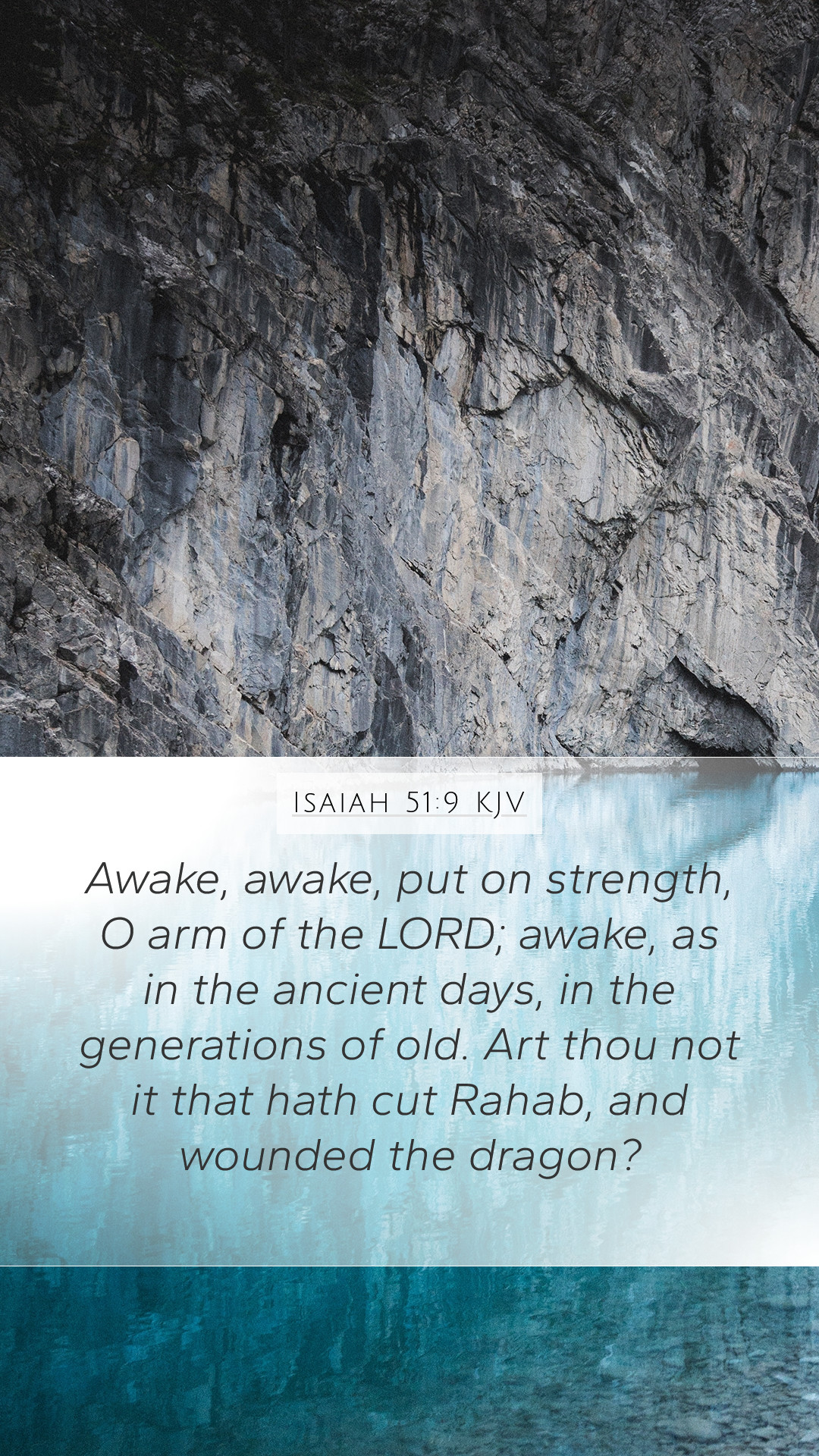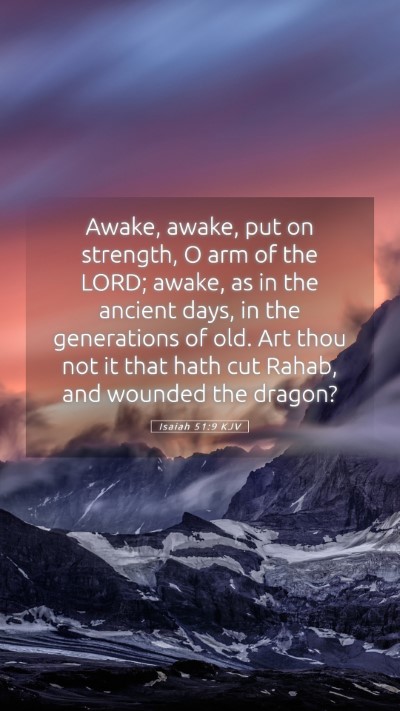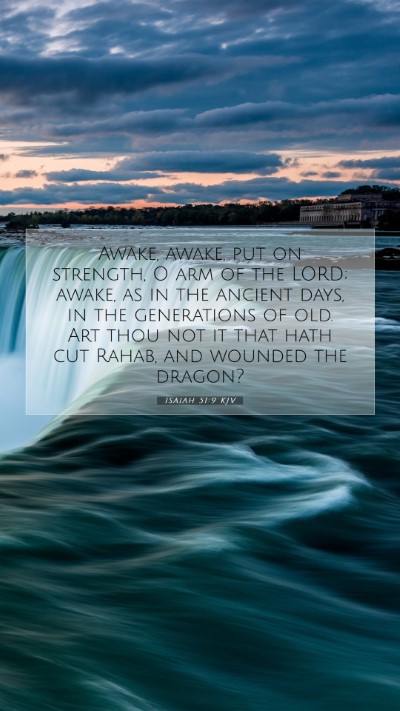Understanding Isaiah 51:9: A Comprehensive Bible Verse Commentary
Bible Verse: Isaiah 51:9
"Awake, awake, put on strength, O arm of the Lord; awake, as in the ancient days, in the generations of old. Art thou not it that hath cut Rahab, and wounded the dragon?"
Overview of Isaiah 51:9
In this verse, God is called upon to demonstrate His power and to "awake" as He had in the past. The imagery of "arm of the Lord" symbolizes divine strength and intervention. Here, the reference to "Rahab" and "the dragon" points towards God’s historical victories over chaos and adversaries, emphasizing His capability to save and deliver His people in their time of need.
Commentary Insights on Isaiah 51:9
- Matthew Henry: Henry portrays this verse as a fervent cry for God to show His might. He explains that the "arm of the Lord" signifies God's active power in history, suggesting that the speaker recalls earlier deliverance when calling for God's intervention. The metaphor of waking up indicates a time of spiritual slumber that needs God's powerful action.
- Albert Barnes: Barnes interprets "Rahab" as a symbol of Egypt, which God defeated during the Exodus, and highlights God's historical triumphs over such powerful entities. He posits that the verse illustrates God's unchanging nature; His might that was evident in ancient times is still present and available to His people. Barnes encourages believers to remind themselves of the great things God has done.
- Adam Clarke: Clarke emphasizes a personal and communal call to God, urging individuals to engage with the divine. He suggests that the reference to "the dragon" symbolizes forces of chaos that oppose God's people. Clarke indicates that this verse is a prayer rooted in faith, trusting that God's arm can provide strength and victory against all adversities.
In-Depth Analysis of Key Themes
1. The Power of God’s Arm
The phrase "put on strength, O arm of the Lord" highlights the notion that human efforts alone are insufficient. It’s a reminder of relying on divine power, as well as recognizing God's historical acts of deliverance and protection. This call to action suggests a need for spiritual awakening.
2. Historical Context and Memory
References to "ancient days" and "generations of old" serve to remind the people of Israel of their past—when God demonstrated His might during critical moments of their history. It underscores the importance of remembering God's acts as a foundation for faith and hope.
3. Divine Intervention in Crisis
The speaker's plea for God to "awake" reflects an awareness of the current struggles faced by the community of believers. It’s a call not just for physical salvation but spiritual revival, signaling a dependence on God, particularly during desperate circumstances.
Application of Isaiah 51:9
This verse encourages believers today to seek strength from God during times of weakness or adversity. It serves both as a reminder of God's past deeds and a promise of His continuing presence. Personal reflection on God’s historical interventions can foster renewed faith and resilience.
Related Bible Verses
- Psalm 77:14 - "Thou art the God that doest wonders..."
- Isaiah 40:10 - "Behold, the Lord God will come with strong hand..."
- Isaiah 43:16 - "Thus saith the Lord, which maketh a way in the sea..."
Conclusion
Isaiah 51:9 serves as a profound reminder of God’s unwavering strength and willingness to aid His people. The verse conveys an essential aspect of faith—the need for divine intervention in the face of overwhelming challenges. Embracing the insights gleaned from public domain commentaries enriches our understanding of this profound scripture, encourages deeper Bible study, and inspires practical application in daily life.
By engaging with verses like Isaiah 51:9, believers can gain valuable Bible study insights and enhance their Bible verse interpretations through resources available for Bible study groups and online Bible study courses.


